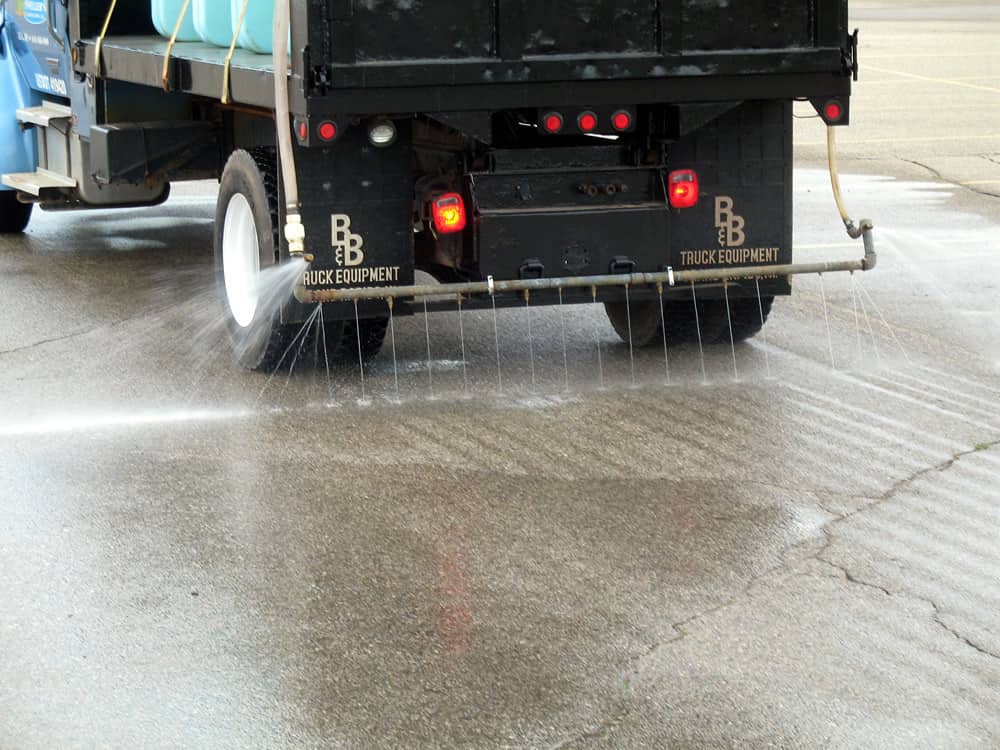Controlling Michigan Ice this Winter without Damaging Concrete
If you were to ask the average person what the most concerning thing about Michigan winter weather is, what would they say? Most likely the answer wouldn’t be the snow or biting wind or bulky clothing, but ice. Though the weather outside may be frightful, it’s not nearly as frightful as a trek down a sidewalk or parking lot that’s coated in a dangerous layer of Michigan ice. The U.S. averages over 400 deaths by icy roads per year – and that’s not counting all the injuries caused by pedestrian slips and falls. Of all the conditions brought on by harsh winters, ice is by far the most dangerous. So how can we get control of the Michigan ice without causing damage to your concrete?
Deicing and Ice Melt Options
Rock salt, or sodium chloride, has long been the first choice for deicing roads and driveways, and for good reasons: it works well, and it is the most cost effective solution. Sodium chloride comes in the form of pellets that can be used with spreading equipment. Rock salt lowers the freezing point of water and helps keep roadways clear. But salt has its downsides. Since it is effective in lowering the freezing point of water, and therefore melting the ice, it increases the number of freeze/thaw cycles on the treated surface. This is the reason that new or lower quality concrete can be damaged by all effective ice melting products, not just rock salt. Concrete is porous, and as water enters the pores, freezes, and expands, the surface of the concrete can flake off, called spalling. The more freeze thaw cycles a surface goes through, the more potential there is for this to happen.
Salt also causes steel to corrode, so it should not be used on parking decks. Since concrete is porous, the chloride seeps into the concrete and causes the structural rebar to rust, expand, and break the concrete apart. Contact us to discuss chloride free products for your parking decks.
Magnesium chloride is a product commonly found in icemelt blends that we try to stay away from. Magnesium has been found to change the chemical makeup of concrete and break down the “glue” that holds the aggregates together, causing it to deteriorate.
Much of this potential damage can be reduced with the effective use of various types of ice melting products. One example is by pretreating the concrete surfaces with our calcium chloride brine. When done properly, the brine fills the pores in the concrete, keeping the water out, which prevents the freeze/thaw cycles from happening within the concrete, and eliminating the cause of spalling. We also utilize calcium chloride in our custom granular icemelt blend which generates heat in the chemical process of melting ice, as compared to just lowering the freezing point of water as sodium chloride does. This creates a drying effect to the concrete, which also helps to avoid spalling. Using a professional snow and ice management company with experience in proper salt application will reduce risk tremendously. Learn more about liquid deicing and other ice control options here.
If you’re unsure what products are best to use, give your local snow removal company a call if you are in Grand Rapids or Lansing Michigan, call Sneller Snow & Grounds at 616-868-4900. A professional company will know what type of and how much product to use for every snow event, keeping both your safety and the effects on the surfaces of your site in mind.
For more information on how to fight the ice this winter, contact us at Sneller; we look forward to helping you make this season a safe one!


